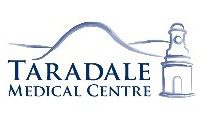Hawke's Bay > GPs / Accident & Urgent Medical Care > Health Hawke's Bay >
Taradale Medical Centre
General Practice (GP) Service
Today
Description
Taradale Medical Centre is a Cornerstone accredited practice comprised of General Practitioners, Nursing and Support staff. As a member of the Hawkes Bay Primary Health Organisation (PHO), our goal is to provide safe, effective and quality health care to our patients. We offer a range of services including general consultations, smoking cessation right through to our nurse led skin check clinics.
The medical centre is fortunate enough to be involved in teaching through the University of Otago Medical School and Eastern Institute of Technology (EIT). You have the option of having a medical student or nursing student look after you. The practice is also involved in training future General Practitioners, so you may be seen by a qualified Doctor who is training in General Practice. All trainee medical or nursing students are supervised at all times.
Staff
Nurse Practitioner - Claire Green
Nurse Practitioner - Victoria Zeyfert
Doctors
-

Dr Jordan Baldwin
General Practitioner
-

Dr Celina Dewe
General Practitioner- Vocationally Registered
-

Dr Cormac Fitzgerald
General Practitioner - Vocationally Registered
-

Dr Anna Flatt
General Practitioner- Vocationally Registered
-

Dr Penelope Henley
General Practitioner - Vocationally Registered
-

Dr Caroline Hill
General Practitioner- Vocationally Registered
-

Dr Christopher Kirton
General Practitioner - Vocationally Registered
-

Dr Darran Lowes
General Practitioner - Vocationally Registered
-

Dr Mark Peterson
General Practitioner - Vocationally Registered
-

Dr Keryn Powell
General Practitioner - Vocationally Registered
-

Dr Jo Randall
General Practitioner - Vocationally Registered
-

Dr Helen Saywell
General Practitioner - Vocationally Registered
-

Dr Samantha Stockwell
General Practitioner - Vocationally Registered
How do I access this service?
Enrolled patients, Make an appointment
Enrolling new patients
No
This practice is not currently taking new patients for enrolment
Occasionally we might open our books for particular GPs. There are generally conditions attached to the enrolling of new patients, for example, having recently moved to Hawkes Bay from elsewhere and do not have a local GP.
Fees
Enrolled Patient Fees
| Age Range | Without CSC | With CSC |
|---|---|---|
| Under 6 years | Free | Free |
| 6 to 13 years | Free | Free |
| 14 to 17 years | $53.00 | Free |
| 18 to 24 years | $57.00 | Free |
| 25 to 44 years | $65.00 | $19.50 |
| 45 to 64 years | $65.00 | $19.50 |
| 65+ years | $65.00 | $19.50 |
Hours
| Mon – Fri | 8:00 AM – 5:00 PM |
|---|
Taradale Medical Centre is for registered patients only. We do not see casual / visiting patients.
After hours: Phone GP practice and follow instructions. You will be transferred to an after hours service who will direct you
Alternatively: We partner with Practice Plus to provide same day virtual GP appointments for enrolled patients, as an extension of our regular medical centre team. Practice Plus is available weekdays until 10pm and weekends/public holidays 8am-8pm.
Click here to find out more and to register/book an appointment.
Public Holidays: Closed Good Friday (18 Apr), Easter Sunday (20 Apr), Easter Monday (21 Apr), ANZAC Day (25 Apr), King's Birthday (2 Jun), Matariki (20 Jun), Hawke's Bay Anniversary (24 Oct), Labour Day (27 Oct), Waitangi Day (6 Feb).
Preferred urgent care clinic out of hours: City Medical Urgent Care.
Services Provided
Our GP practice has team members who work alongside your doctor and nurses to provide you with a range of mental wellbeing supports and tools. These team members may include Health Improvement Practitioners (HIPs), Health Coaches and Support Workers. View the following link for more information about wellbeing support in general practice and the national Access & Choice programme.
Our GP practice has team members who work alongside your doctor and nurses to provide you with a range of mental wellbeing supports and tools. These team members may include Health Improvement Practitioners (HIPs), Health Coaches and Support Workers. View the following link for more information about wellbeing support in general practice and the national Access & Choice programme.
Our GP practice has team members who work alongside your doctor and nurses to provide you with a range of mental wellbeing supports and tools. These team members may include Health Improvement Practitioners (HIPs), Health Coaches and Support Workers.
View the following link for more information about wellbeing support in general practice and the national Access & Choice programme.
All women and people with a cervix aged 25 – 69 who have ever had intimate skin-to-skin contact or been sexually active should have regular cervical screening. This includes women who have been immunised against HPV. Together, regular screening and HPV immunisation provide the best protection against cervical cancer. There are now more options for how you have cervical screening done: a simple vaginal swab test for HPV, either done yourself or with help from a healthcare professional a cervical sample taken by a healthcare professional (used to be known as a smear test). Talk with your healthcare provider to decide which option is best for you. If HPV is found, you may need to have a follow-up test or be referred directly for colposcopy. If you’ve not yet had HPV testing, you should be screened 3 years after your last test (or 1 year if immune deficient). Once you have had an HPV test, and providing HPV is not found, your next screening will be in 5 years (or 3 years if immune deficient). For more information: Cervical screening | Time to Screen - National Screening Unit
All women and people with a cervix aged 25 – 69 who have ever had intimate skin-to-skin contact or been sexually active should have regular cervical screening. This includes women who have been immunised against HPV. Together, regular screening and HPV immunisation provide the best protection against cervical cancer. There are now more options for how you have cervical screening done: a simple vaginal swab test for HPV, either done yourself or with help from a healthcare professional a cervical sample taken by a healthcare professional (used to be known as a smear test). Talk with your healthcare provider to decide which option is best for you. If HPV is found, you may need to have a follow-up test or be referred directly for colposcopy. If you’ve not yet had HPV testing, you should be screened 3 years after your last test (or 1 year if immune deficient). Once you have had an HPV test, and providing HPV is not found, your next screening will be in 5 years (or 3 years if immune deficient). For more information: Cervical screening | Time to Screen - National Screening Unit
All women and people with a cervix aged 25 – 69 who have ever had intimate skin-to-skin contact or been sexually active should have regular cervical screening. This includes women who have been immunised against HPV. Together, regular screening and HPV immunisation provide the best protection against cervical cancer.
There are now more options for how you have cervical screening done:
- a simple vaginal swab test for HPV, either done yourself or with help from a healthcare professional
- a cervical sample taken by a healthcare professional (used to be known as a smear test).
Talk with your healthcare provider to decide which option is best for you.
If HPV is found, you may need to have a follow-up test or be referred directly for colposcopy.
If you’ve not yet had HPV testing, you should be screened 3 years after your last test (or 1 year if immune deficient). Once you have had an HPV test, and providing HPV is not found, your next screening will be in 5 years (or 3 years if immune deficient).
For more information: Cervical screening | Time to Screen - National Screening Unit
Immunisation is the safest and most effective way to provide protection for you and your tamariki’s health. For more information view the NZ immunisation schedule.
Immunisation is the safest and most effective way to provide protection for you and your tamariki’s health. For more information view the NZ immunisation schedule.
- Pregnancy vaccinations
- Childhood immunisation programme
- 45 year old vaccinations
- Adult flu vaccine
- Child flu vaccine
- Diphtheria / Tetanus / Pertussis (whooping cough) vaccine
- Measles / Mumps / Rubella (MMR) vaccine
- Meningococcal vaccine
Immunisation is the safest and most effective way to provide protection for you and your tamariki’s health. For more information view the NZ immunisation schedule.
Health screening tests check for health conditions or early warning signs of disease.
Health screening tests check for health conditions or early warning signs of disease.
- Cervical screening
Health screening tests check for health conditions or early warning signs of disease.
LARC methods are very effective at preventing unplanned pregnancy and are “fit and forget” forms of contraception – you don’t need to remember them every day or every month. LARC methods: Intrauterine Contraceptive Devices (IUCD or IUD) are inserted through the cervix into a woman’s uterus. IUCDs may be either hormonal (Mirena® or Jaydess® ) or non-hormonal (copper IUCD). Jadelle® is a hormone-releasing implant that is inserted just under the skin of the upper arm. Depending on the type of device, it will need to be changed after between three and ten years. Read more about LARC methods here
LARC methods are very effective at preventing unplanned pregnancy and are “fit and forget” forms of contraception – you don’t need to remember them every day or every month. LARC methods: Intrauterine Contraceptive Devices (IUCD or IUD) are inserted through the cervix into a woman’s uterus. IUCDs may be either hormonal (Mirena® or Jaydess® ) or non-hormonal (copper IUCD). Jadelle® is a hormone-releasing implant that is inserted just under the skin of the upper arm. Depending on the type of device, it will need to be changed after between three and ten years. Read more about LARC methods here
- Implant (Jadelle) inserts
- IUD inserts
- Free or subsidised contraception services (enquire for eligibility and details)
- IUD removals
- Implant (Jadelle) removal
LARC methods are very effective at preventing unplanned pregnancy and are “fit and forget” forms of contraception – you don’t need to remember them every day or every month. LARC methods:
- Intrauterine Contraceptive Devices (IUCD or IUD) are inserted through the cervix into a woman’s uterus. IUCDs may be either hormonal (Mirena® or Jaydess® ) or non-hormonal (copper IUCD).
- Jadelle® is a hormone-releasing implant that is inserted just under the skin of the upper arm.
Depending on the type of device, it will need to be changed after between three and ten years.
Read more about LARC methods here
Disability Assistance
Wheelchair access, Wheelchair accessible toilet, Mobility parking space, More space to move around, A longer appointment time
Online Booking URL
Website
Contact Details
20-24 Puketapu Road, Taradale, Napier
Hawke's Bay
-
Phone
(06) 844 6831
Healthlink EDI
park
Email
Website
Please do not send confidential information by email. To request appointments etc on-line, please register for the patient portal next time you are in the practice.
Book an appointment20-24 Puketapu Road
Taradale
Napier 4112
Street Address
20-24 Puketapu Road
Taradale
Napier 4112
Postal Address
20-24 Puketapu Road
Taradale
Napier 4112
Was this page helpful?
This page was last updated at 3:24PM on February 25, 2025. This information is reviewed and edited by Taradale Medical Centre.

